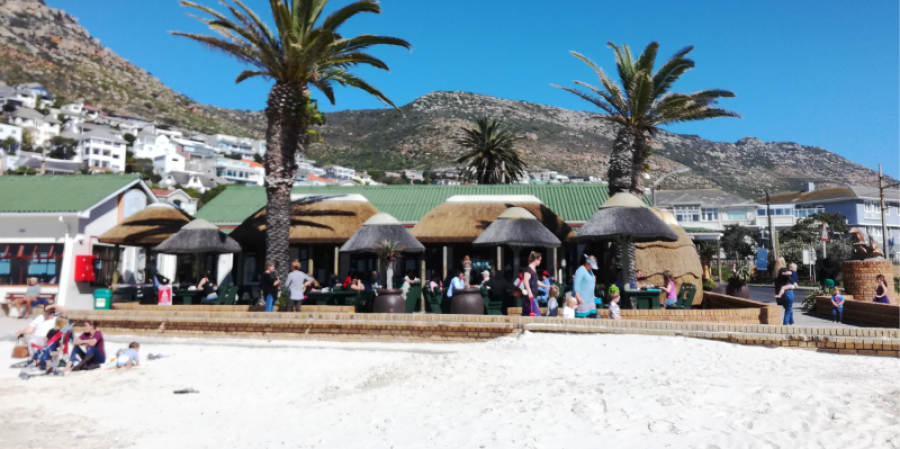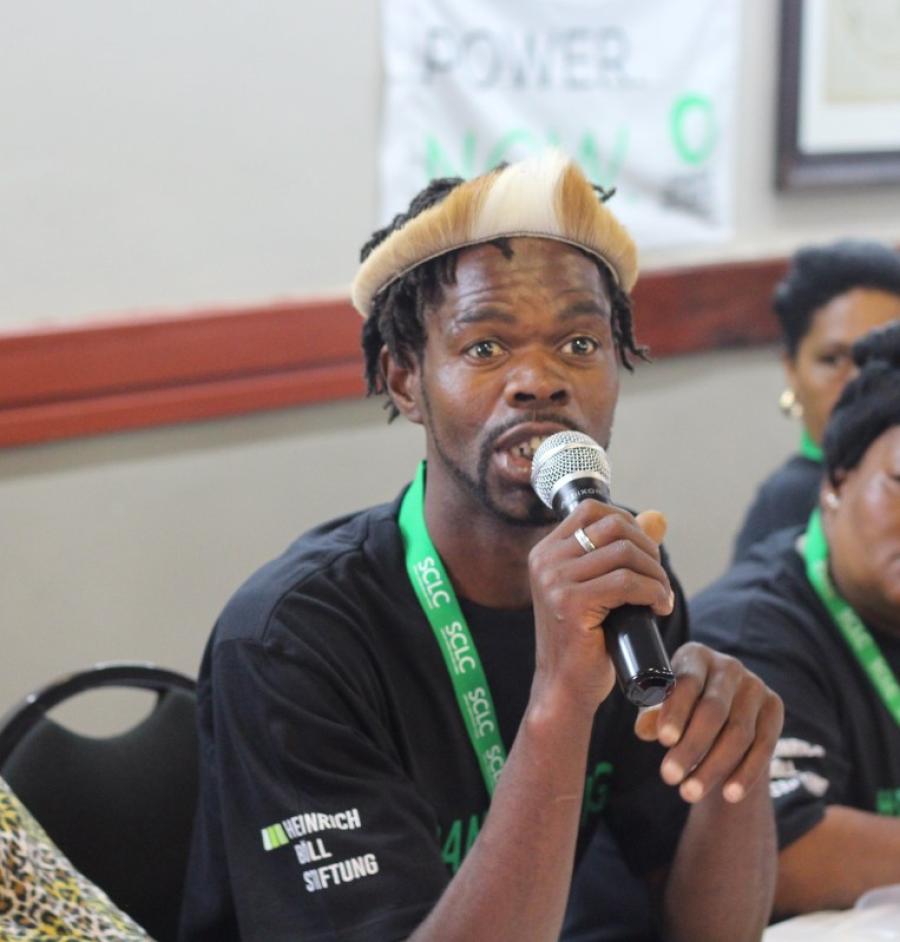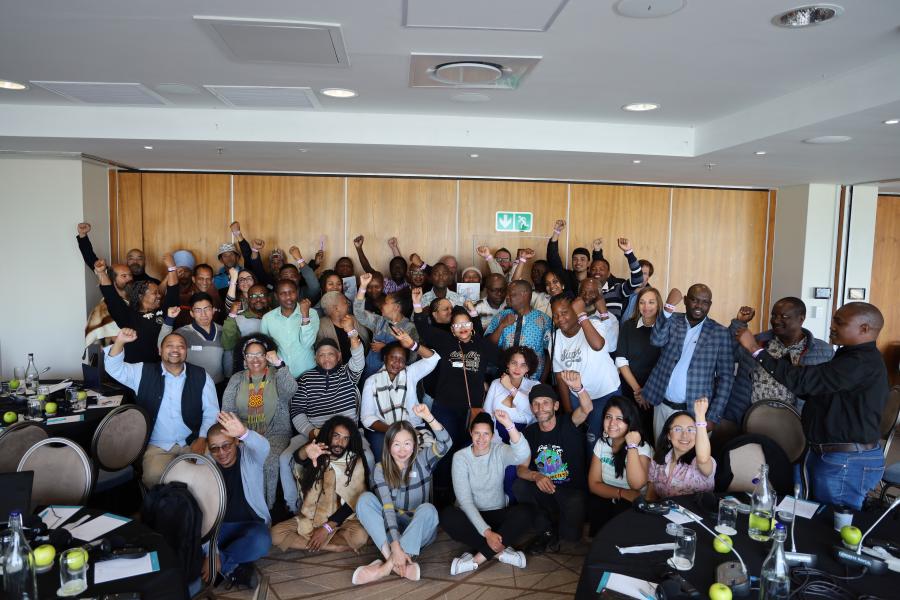The latest round of protests in South Africa may result in fundamental changes in its system of apartheid. For the first time, conservative businessmen and banned African National Congress (ANC) leaders are talking. Their talks have proceeded because the South African economy is more fragile than the business community had thought. The government has suspended loan repayments until the end of the year, and businessmen, fearing that essential capital will "dry up," have realized that the system must change. Now is the time for the government to invite Black and "coloured" leaders to negotiate South Africa's future.
After years of protesting apartheid, Blacks in South Africa have intensified their struggle in the past year, and forced the world to take notice. External pressure on the South African government and economy is also forcing White South Africans to realize that the present political system cannot continue. The Sullivan principles, which provide business guidelines for foreign corporations, limited economic sanctions and trade embargoes, and the divestiture of US corporate investment, have each, in their own small way, made South Africans recognize that external pressure does have an impact on their economy. Reports from South Africa indicate that Whites are becoming increasingly aware of this.
In order to allow all South Africans to take part in the framing of a new constitution that will grant full citizenship and power sharing to all groups, multi-racial talks must begin. Nelson Mandela, the jailed African National Congress leader, as well as other political prisoners and tribal and religious leaders, should be invited to participate in such talks.
Interviews with Mandela indicate that he is open to discussions and power sharing between Whites and Blacks. For example, in a recent interview he said, "Unlike White people anywhere else in Africa, Whites in South Africa belong here - this is their home. We want them to live here with us and to share power with us." Mandela and other Black leaders must be at the bargaining table alongside "coloureds," to discuss the specific course of action that will most effectively and peacefully dismantle the present system of apartheid.
South Africa's President Botha has responded to the present crisis, as Anthony Lewis writes in The New York Times, by intensifying "repression at home and military aggression abroad." Using brutal methods of arrest, imprisonment, torture and even deliberate, unprovoked killing of young children, the government is attempting to silence the voice of opposition within the country while supporting terrorist campaigns against neighboring countries. President Botha has chosen to continue South Africa's racist policies even though the business community and what has been estimated as a majority of the White population favor a negotiated settlement. Already, he has condemned and declared illegal talks between businessmen and the ANC. Unless Botha can be persuaded to abandon his present course of action, violence will escalate and the economy will deteriorate. More importantly, government intransigence on issues relating to reform may well erode the support of Black opposition leaders who are now willing to talk about sharing power with Whites.
While the future of South Africa should be decided by all South Africans, the US could play a pivotal role in bringing the different sides together in "constructive engagement." If the violence continues to escalate, there may be little chance for a moderate, peaceful end to apartheid.
In a recent news conference, however, President Reagan showed that he knew woefully little about Blacks' conditions in South Africa. Until recently, he has attempted to block any economic sanctions against South Africa, but finally in order to avoid the more strict sanctions already passed by the House and being considered by the Senate, he endorsed limited sanctions. The Reagan administration, it appears, does not want any role in the conflict or the change that is overtaking South Africa. However, where the Reagan administration will not take the lead, private citizens can. Each of us - through our retirement plans, churches, investments, banks, or universities - can take a stand that will help to bring an end to apartheid.
The vulnerability of the South African economy is the key to political reform. Economic sanctions are in place both in Western Europe and the United States. US corporations have divested ten percent of all investments in South Africa in the last four months. The South African economy is in a crisis; the recent run on the Rand is what forced the government to suspend all foreign loan payments until 1986. If all that has been accomplished to date is not to be undermined. South Africa must make meaningful reforms. If it does not begin serious talks with all political factions and establish a timetable for the implementation of full democracy by 1 January 1986, then sanctions - economic, political and diplomatic - should be increased until such talks are conducted.
South Africa's history is complex and solutions to many problems will not come easily. Which groups have claims to which regions, who owns subsoil rights, who will negotiate (representatives from political parties, tribal/ethnic groups, racial groups), and how power will be shared, are just a few of the highly charged issues that must be resolved.
This is a critical time in South Africa. But as Gavin Relly, Chairman of the Anglo-American Corporation and one of the businessmen who recently talked with the ANC, said, "Our positions are very far apart, but as South Africans we are all interested to create a more cohesive society and a more equitable one. The real common ground is that we are concerned that the next generation should inherit a viable political and economic system."
Many White South Africans are concerned about what will happen to them if the country's Black population (71% of the total) is granted full citizenship. The best way to find out, however, is to sit down and talk about it with the African National Congress and tribal leaders. The alternative - political and economic chaos - is worse for everyone.
Article copyright Cultural Survival, Inc.



